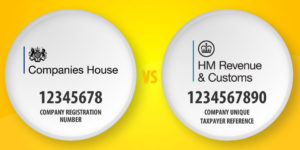As consumers strive to become more socially and environmentally aware, conscious businesses worldwide are taking steps to demonstrate to new and existing customers that they are taking action. One way they do this is by seeking B Corp Certification.
This article explains everything business owners need to know about B Corp Certification, including what it is, how to get your business accredited and how much it costs. Let’s get started.
What is B Corp Certification?
B Corp Certification is an accreditation awarded to for-profit businesses that achieve high performance in relation to social and environmental factors, accountability, and transparency. Businesses that wish to be accredited must undergo a rigorous application process, which we will explore in further detail shortly.
The accreditation is operated by B Lab Global (the B stands for ‘Benefit for all’), a ‘nonprofit network transforming the global economy to benefit all people, communities, and the planet.’ and overseen by their independent Standards Advisory Council. B Lab was founded in America in 2006, with the first B Corp Certifications awarded in 2007.
- How to set up a charity in the UK
- How to change your company’s articles of association
- Trust badges – their benefits and how to use them
Once a business has been accredited, it is known as a ‘Certified B Corporation’ or simply a ‘B Corp’. Certified companies can publish the ‘B Corp mark’ on their website and other marketing materials, such as packaging and advertising. Moreover, their names are published on the B Corp Global Directory.
What traits should a B Corp have?
B Corps are committed to having a positive impact. While having every intention of making a profit, a B Corp (or a business worthy of being a B Corp) will consider the more significant affect every one of its business decisions has on the community and the environment.
Shareholders should not be the sole focus of the business as they would be in most companies. Instead, all stakeholders’ interests must be taken into account. This would cover shareholders but should include employees, business partners, suppliers, clients, and the local community.
To qualify as a B Corp, a business should be able to demonstrate that it has a positive impact in five key areas:
- Governance
- Workers
- Customers
- Environment
- Community
Why do businesses apply to become B Corps?
Aside from the positive feeling of doing work in a way that qualifies for certification, there are several more business-orientated reasons for becoming part of the movement. A B Corp can expect to:
- Appeal to customers who are careful about their consumer choices
- Boost brand awareness
- Increase customer loyalty
- Attract new conscientious talent
- Motivate and retain existing employees
- Improve the likelihood of securing outside financing
- Become part of a community of like-minded business owners
Who can apply to become a B Corp?
Most business types can apply for certification, provided they are for-profit and have been operating for at least 12 months. This includes limited companies, limited liability partnerships and sole traders. Not-for-profits and charities cannot apply.
For some ‘high-impact, controversial industries’, B Lab’s Standards Advisory Council will carry out an ‘Eligibility Review’ whereby a business will only qualify for accreditation if it can meet additional requirements. Examples of such industries include:
- Casino industry companies
- Cannabis-related products
- Debt collection agencies in emerging markets
- Fossil fuels and energy companies
- Marketing of breastmilk substitutes
Currently, B Lab Global is not accepting applications for B Corp certification from countries without ‘Global or Country Partner representation’. You can view a full list of the countries that are affected here.
Whilst startups and smaller businesses still in their first 12 months of trading can’t become B Corps, they can apply to be a Pending B Corp.
A successful application to become a Pending B Corp allows a business to demonstrate that it’s focused on its social and environmental impact. It also gives it a headstart in securing B Corp status once it has been operating for over 12 months.
How many businesses are B Corp Certified?
At the time of writing, there are 8,960 B Corp Certified businesses worldwide, over 2,000 of which are based in the UK.
How long does B Corp Certification take?
Certification time depends on a business’ size and the specifics of the application. However, to give a rough idea, small—to medium-sized businesses can be certified within 6 – 8 months, with larger companies generally taking longer.
How much does it cost to get B Corp Certified?
Participating in the B Impact Assessment (see ‘What is the process for becoming a B Corp?’ below for more information) is free.
You must then pay a one-off ‘submission fee’ to cover the cost of having the assessment adequately reviewed. The sum you pay depends on your annual revenue, with a business making up to £149,999 needing to pay £200.
From 1 July 2024, you must also pay a one-off ‘Verification fee’ to allow B Lab to ‘keep up with growing demand and momentum of the movement while maintaining the rigour of our verification process and evolving our standards’. The sum you pay depends on your annual revenue, with a business making up to £149,999 needing to pay £360.
Finally, you must pay an ‘Annual fee’ to remain certified. Again, the sum you pay depends on your annual revenue, with a business making up to £149,999 needing to pay £1,000.
Enter your annual revenue on the ‘Find your fees’ tool to check what your business must pay for all three fees.
What is the process for becoming a B Corp?
The application process for eligible businesses can be broken down into three steps:
- The B Impact Assessment (BIA)
- B Corp Legal requirements
- The review process
Then, once the accreditation has been granted, a business must write an annual impact report and apply to be recertified every three years. Let’s examine these steps in more detail.
Please note the following outlines the process for B Corp Certification. See here for information on applying to become a Pending B Corp.
The B Impact Assessment (BIA)
This free online assessment measures your company’s performance in the five key areas (governance, workers, customers, environment, and community).
Your assessment can be submitted to B Lab for review when your company has achieved a score of at least 80 out of 200 points, and the confidential Disclosure Questionnaire has been completed. You must also provide further details about the company, including its structure, subsidiaries, and products and services sold.
The time it takes to complete the BIA will depend on various factors, including size and industry, but it can take approximately three hours. You can save and return to the assessment when convenient if you can’t complete it in one sitting.
B Lab may contact you to request supporting documentation regarding some of your answers. B Lab will then provide you with your score. Most businesses fail to achieve 80 points following verification from B Lab.
Using the feedback provided by B Lab’s report, you should work to improve your overall impact and eventually reach the necessary 80 points when you resubmit the assessment.
B Corp Legal requirements
You must now demonstrate your intent to be a socially and environmentally conscious business by making a legal commitment to amend your company’s constitution. This can earn you up to 10 points towards your company’s BIA score.
Precisely what this requires depends on your business type (B Lab will be able to provide guidance).
For example, if you operate as a private company limited by shares, you must amend the company articles of association, adding provisions relating to B Lab’s ‘stakeholder governance’ requirements; this framework sets out the requirement to consider all stakeholders when making business decisions.
At this stage of the process, you must sign the B Corp Agreement and agree to their Declaration of Interdependence (you can read the declaration in full here).
The review process (where payment is required)
Your application is then sent to B Lab UK, where it’s queued for evaluation. Now, you pay your one-off submission and verification fees, upload some extra information about your business, and, if you want, resubmit your BIA (if you believe your score has increased).
Your application can sit in the evaluation queue for up to three months. Once it reaches a B Lab analyst, they will check that everything is in order, which can take one to three months.
Then, your application is sent to B Lab Global, where it’s queued for verification. At this stage, you will be asked to upload further supporting information to accompany your application. This can take up to one month.
When it’s ready for verification, you will work with an analyst who will assess your application and guide you through the remainder of the process, which may involve providing more supporting documentation. This will take approximately one to three months. Finally, if everything is as required, you will be certified.
Ongoing responsibilities
Once your business has been through the rigorous process of being certified, you must:
- Ensure your B Impact Assessment score remains above 80 points
- Prepare an annual Impact Report that is delivered to B Lab and made publicly available on your website
- Pay your Annual fee
- Recertify every three years (the Annual fee covers costs)
Of course, you must also continue to operate your business in a way that is always socially and environmentally mindful and ultimately worthy of the B Corp accreditation.
Thanks for reading
So there you have it; your B Corp Certification questions answered. We hope you found this article helpful.
If your company received a B Corp Certification (congratulations!), how did you find the process? Or, if you’re currently going through the application, how’s it going so far? Leave a comment to get in touch.
Please note that the information provided in this article is for general informational purposes only and does not constitute legal, tax, or professional advice. While our aim is that the content is accurate and up to date, it should not be relied upon as a substitute for tailored advice from qualified professionals. We strongly recommend that you seek independent legal and tax advice specific to your circumstances before acting on any information contained in this article. We accept no responsibility or liability for any loss or damage that may result from your reliance on the information provided in this article. Use of the information contained in this article is entirely at your own risk.













Join The Discussion
Comments (2)
Excellent article! I was having some B-corp certification questions and this article perfectly answered them. I will try to implement similar transparency and clarifications in my own tax compliance UK business.
Thank you for your kind comment, David. B-corp certification is a fantastic way to demonstrate your commitment to sustainability and social responsibility.
Kind regards,
The 1st Formations Team